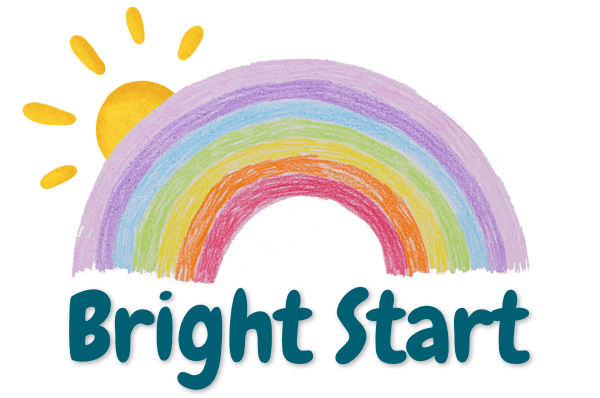Progressive Education: Understanding the Landscape & Why Montessori Stands Out
A Look Back: Government Schooling in the UK
Government schooling in the UK has its roots in the 19th century, born out of a need to create a literate, obedient workforce for an industrial society. The Elementary Education Act of 1870 laid the foundation for compulsory education, with an emphasis on discipline, uniformity, and rote learning. In many ways, schools mirrored the factory model—structured timetables, age-grouped classes, and top-down instruction.
Over the decades, there have been efforts to modernise and diversify the system: the introduction of the National Curriculum in 1988, academisation, more focus on inclusion, mental health, and digital literacy. However, many argue that mainstream education still favours conformity over creativity, and standardised outcomes over individual development.
But children—and the world—have changed. The skills needed in today’s world are not just reading, writing, and arithmetic, but empathy, adaptability, problem-solving, and collaboration. This has opened up a growing conversation about progressive alternatives that better reflect 21st-century needs.
So, is the old model still relevant? Or is it time to explore alternatives that better prepare children for the world they’re growing up in?
What Is Progressive Education?
Progressive education is a broad term for educational practices that put the child—not the system—at the centre. These approaches respect the child’s pace, interests, and emotional development, and they often prioritise critical thinking, creativity, and collaboration over standardised testing.
Here are some of the most well-known progressive education philosophies:
1. Waldorf (Steiner) Education
Created by Rudolf Steiner in 1919, Waldorf education emphasizes a holistic approach—balancing intellect, creativity, and practical skills. The curriculum is rich in storytelling, arts, movement, and nature. Formal academics are introduced gradually to align with child development.
Highlights:
- Strong focus on imagination and play.
- Emphasis on rhythm, routine, and minimal technology.
- Artistic and experiential learning.
2. Reggio Emilia Approach
Originating in post-WWII Italy, Reggio Emilia is a child-led, project-based philosophy where children are seen as competent, resourceful, and full of potential. Teachers observe and listen to children’s interests and ideas, then guide them through meaningful exploration, often in beautifully designed, collaborative environments.
Strengths:
- Encourages deep thinking and collaboration.
- Beautifully thought-out learning environments.
- Strong involvement of families in the learning process.
3. Democratic Education
Schools like Summerhill in the UK embody democratic education, where students have a say in how their school is run—including what, when, and how they learn. Equality and respect between adults and children are central.
Highlights:
- High respect for student agency and autonomy.
- Builds self-confidence and accountability.
- Encourages active participation and critical thinking.
4. Forest Schools
Forest schools take children outside for hands-on learning in nature. Lessons are shaped by the natural environment and the seasons, promoting resilience, creativity, and teamwork.
Highlights:
- Builds physical and emotional resilience.
- Strengthens connection with nature.
- Encourages risk assessment and independence.
5. Montessori Education
Developed by Dr. Maria Montessori over a century ago, Montessori education is rooted in scientific observation of how children learn. Children are free to choose their work within a carefully prepared environment filled with hands-on materials. Teachers serve as guides, not instructors.
Highlights:
- Child-led, self-paced learning.
- Mixed-age classrooms to foster peer mentorship.
- Purposeful materials that develop independence, focus, and self-discipline.
- Respectful, calm environments that encourage intrinsic motivation.
Which Approach Is Best?
Each progressive education philosophy offers something valuable, and what works best often depends on your child’s personality and your family’s values. The common thread is a respect for children as individuals and learners: children are capable, curious, and deserving of respect.
At our Montessori nursery and preschool, we witness daily how children flourish when they are given freedom within structure, supported by thoughtfully designed materials and a calm, respectful environment.
They grow into:
- Confident, curious learners
- Empathetic peers and thoughtful community members
- Independent thinkers with a love of discovery
In a world that is changing rapidly, these qualities aren’t just desirable—they’re essential.
Final Thoughts
Government schooling served a purpose in a different era. Today’s children face different challenges, and they need education that prepares them not just for exams, but for life.
Progressive education offers many inspiring alternatives. And Montessori, with its century-old wisdom backed by modern neuroscience, stands as one of the most effective and proven methods for early childhood development.
Want to Learn More?
📧 Contact us: Montessori.gi
📞 Schedule a Visit: (+350) 54070555
A sneak peek
Bright Start Montessori is a small, nurturing nursery and preschool located in the heart of Gibraltar. We welcome a maximum of just 25 children at any one time, allowing us to provide truly individualised care and attention.
Our staff-to-child ratios reflect our commitment to quality:
- 1:4 for children aged 1 to 2 years
- 1:5 for children aged 2 to 3 years
- 1:8 for children aged 4 to 6 years
At Bright Start, you’ll find a team of caring, dedicated educators who put your child’s well-being, development, and happiness at the forefront—supporting them through every stage of their Montessori journey.
While we don’t have an on-site outdoor space, this has become one of our greatest advantages. Instead of being limited to a single playground, our children regularly explore the diverse and stimulating environments that Gibraltar has to offer. From Commonwealth Park to The Alameda Gardens, The Royal Theatre Park, John Mackintosh Hall & Library, and many more—our outings bring nature, culture, and community into the heart of our curriculum. These real-world experiences help children connect with their surroundings, develop social confidence, and see learning as something that happens everywhere—not just inside the classroom.
Let’s help your child discover the joy of learning—for life.
